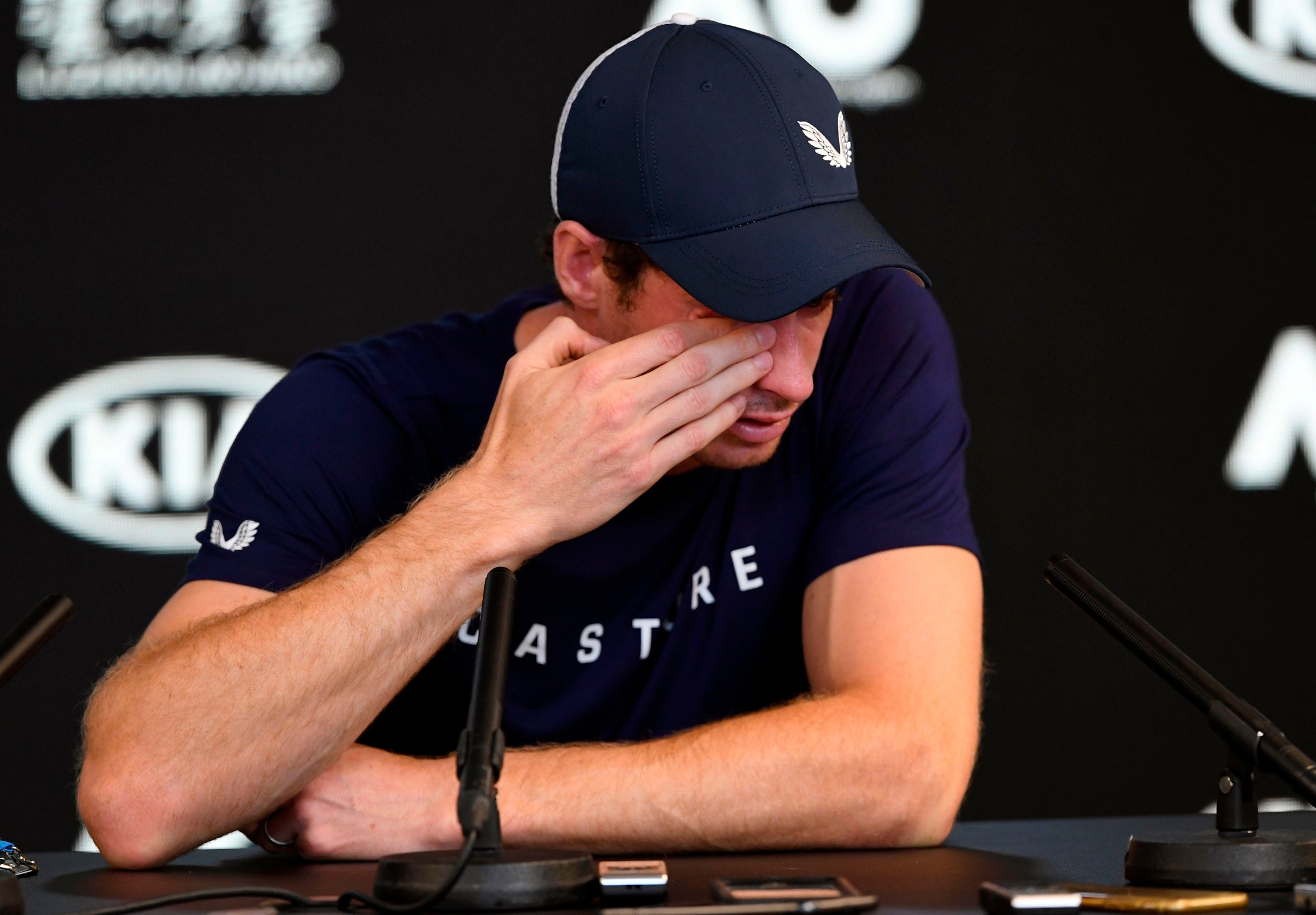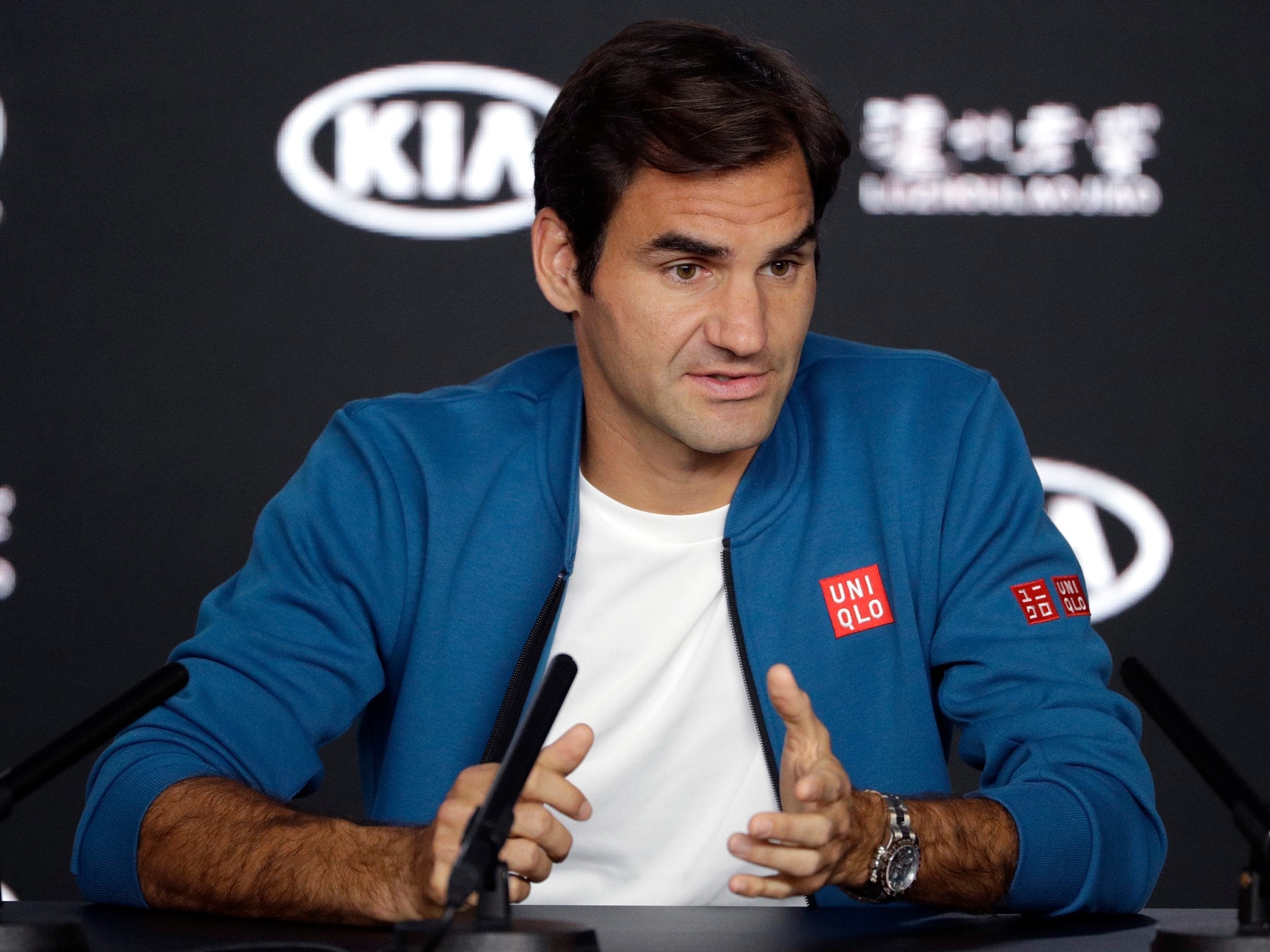Australian Open 2019: Roger Federer reveals the secret behind his longevity as Andy Murray prepares to bow out
The 37-year-old defending champion remains at the very top of his game

Your support helps us to tell the story
From reproductive rights to climate change to Big Tech, The Independent is on the ground when the story is developing. Whether it's investigating the financials of Elon Musk's pro-Trump PAC or producing our latest documentary, 'The A Word', which shines a light on the American women fighting for reproductive rights, we know how important it is to parse out the facts from the messaging.
At such a critical moment in US history, we need reporters on the ground. Your donation allows us to keep sending journalists to speak to both sides of the story.
The Independent is trusted by Americans across the entire political spectrum. And unlike many other quality news outlets, we choose not to lock Americans out of our reporting and analysis with paywalls. We believe quality journalism should be available to everyone, paid for by those who can afford it.
Your support makes all the difference.Roger Federer believes that being careful not to over-train and not push his body too hard have been major factors in his longevity. While Rafael Nadal, Novak Djokovic and Andy Murray have all suffered with serious injuries in recent times, the oldest member of the “Big Four” appears to be as fit as ever as he prepares to play in his 20th consecutive Australian Open.
Federer, aged 37, who faces Denis Istomin in the final match of the opening day in Rod Laver Arena on Monday, has had occasional fitness issues of his own, particularly in recent years, but careful scheduling – such as his decision to skip the last two clay-court seasons – has helped to ensure that he can continue to compete at the highest level.
“I've always believed I can play tennis when I don't train so much,” Federer said here on Sunday. “I think that's been maybe one thing that for me, the confidence I have in my game, even if I don't play so much, I still feel like I can come up to a good level. Maybe that takes away some pressure.Maybe also the way I play tennis, maybe it's smoother than the other guys.”
Murray, who plays Spain’s Roberto Bautista Agut here on Monday, revealed last week that this tournament could be his last because of the hip injury he suffered at the 2017 French Open. Although he had surgery last January, he is still suffering with pain. Having hoped to make this summer’s Wimbledon his farewell tournament, he admitted that he might end his career here.
Could the 31-year-old Scot’s remarkable capacity for hard work be partly responsible for his physical problems? Murray has struggled with fitness issues ever since his extraordinary exertions at the end of 2016, when he won nine of the 13 tournaments he played from April onwards and won his last 24 matches of the season to secure his position at the top of the year-end world rankings.
His last match that year was in the penultimate week of November, yet he went ahead with his traditionally gruelling Miami training camp the following month and played in Doha in the first week of January before going down to a lacklustre defeat against Mischa Zverev here in the fourth round of the Australian Open.
In the following weeks Murray fell ill with flu and shingles, sustained an elbow injury and finally suffered the hip problem that will now bring a premature end to his career.
Federer, meanwhile, admitted that luck might have played a part in his own longevity but added: “I think I really understand my body very well. I know when something hurts and I can play with it. I know when something hurts and I should not play with it, but I can still play maybe a match, maybe a week, a month, whatever it may be. Sometimes that helps.”
Asked if he thought age made a difference, Federer said: “I think what happens with age maybe the most is that certain things take longer to recover from. When you're young, let's just say you have, I don't know, a pain in let's just say the elbow. The next day you can play with it and two days later it's like you never had it.
“All of a sudden at maybe 30, 35, 40, depending on who you are, what problems you've had, you will just feel it for two weeks. You can still play, but now you're playing with pain. It just takes longer to get rid of.
“Again, everybody is very different. Everybody takes the pain differently. I think then that's also where you have to be very wise what kind of schedule you're playing with, what problem you're dealing with.”

Federer, who played Murray in an exhibition match in Glasgow in 2017 as his rival was attempting to recover from his hip problem, was asked about the Scot’s decision to retire.
“I think unfortunately his body took the decision,” Federer said. “I think it must have been a very long couple of years for him now. When I played with him in Glasgow, I know how not well he was. I couldn’t believe he actually played.”
Federer added: “I guess everybody can understand where he comes from. At some point when you feel like you're never going to get back to 100 per cent and you've had the success that Andy has had, you can only understand the decision.
“I was disappointed and sad - and a little bit shocked - to know that now we're going to lose him at some point – though we're going to lose everybody at some point. It's just now that it's definite.
“Of course I hope that he can play a good Australian Open and he can keep playing beyond that, really finish the way he wants to at Wimbledon. That's what I hope for him.
“Of course it hits us top guys hard because we know Andy very well. We like him. He doesn't have any enemies, to be quite honest. He's a good guy, Hall of Famer, legend. He won everything he wanted to win. Anybody would substitute their career with his.
“He's a great guy.It's a tough one, but down the road he can look back on [his career] and be incredibly proud of everything he has achieved.”

Novak Djokovic said he had been aware in his practice match against Murray last Thursday that his long-time rival was struggling.
“We've seen so many years of Andy Murray being one of the fittest guys on the tour, running around the court, always getting an extra ball back,” Djokovic said. “To see him struggle so much and go through so much pain, it's very sad and it hurts me as his long-time friend, colleague and rival.
“I've nurtured a very good relationship with him on and off the court. I'm proud to have that kind of relationship that will go on hopefully for many more years, regardless of whether we get to play against each other or not, whether he continues playing, whatever happens.
“Andy is a very respected and likeable guy around the locker room. He's a great champion. He's a legend of this sport, without a doubt.”
Bautista Agut, the No 22 seed here, agreed that Murray was “one of the best tennis players in history” but said he would have no qualms about exploiting his opponent’s physical problems when they meet in the Melbourne Arena, the third of the show courts here. The match will start no earlier than 6pm local time (7am GMT).
“I will try everything to get the win,” the 30-year-old Spaniard said. “I think everybody knows that every time Andy goes on court he gives 100 per cent. He’s been a fighter all his career and I think this match will be the same.”
Join our commenting forum
Join thought-provoking conversations, follow other Independent readers and see their replies
Comments